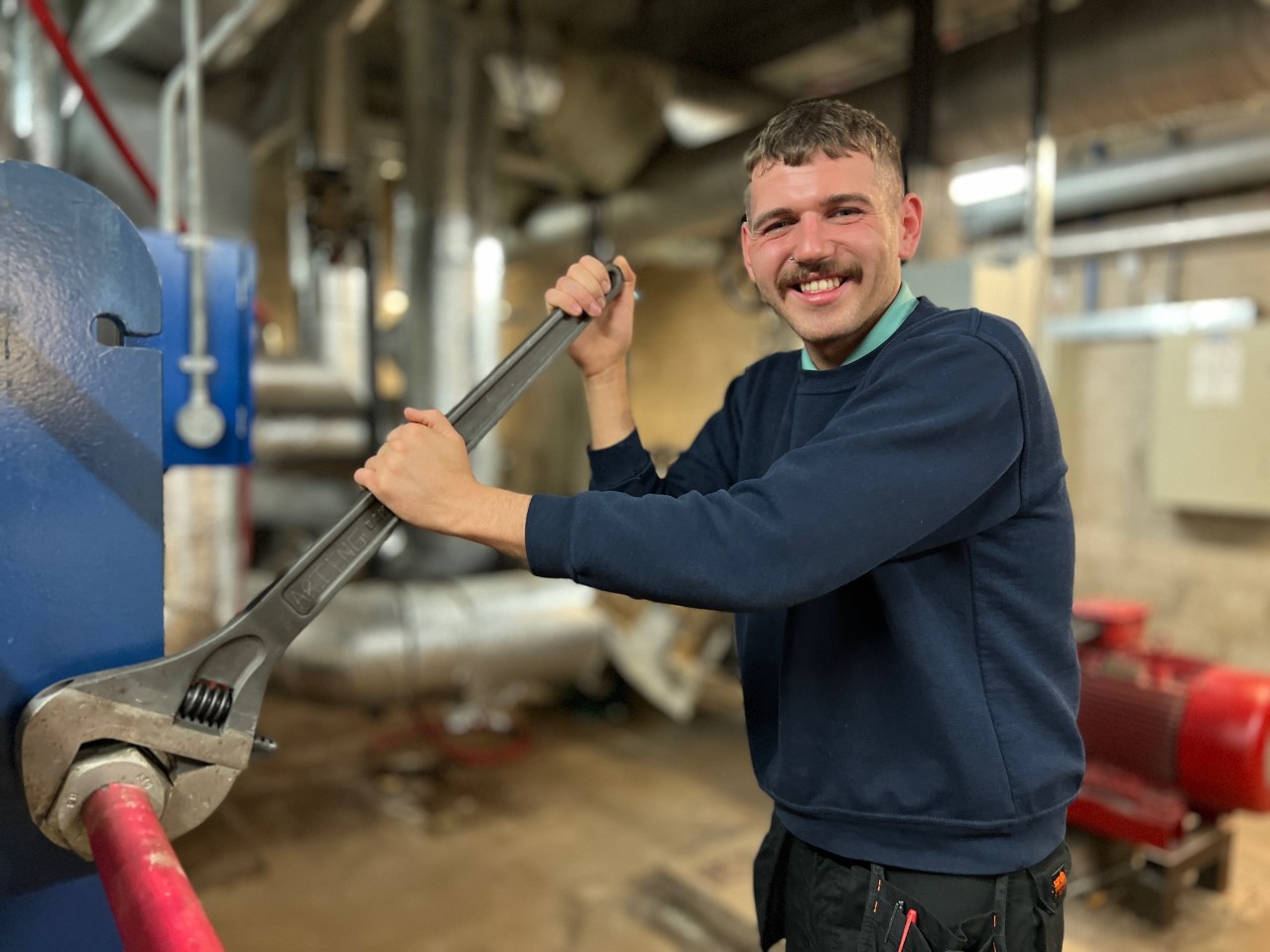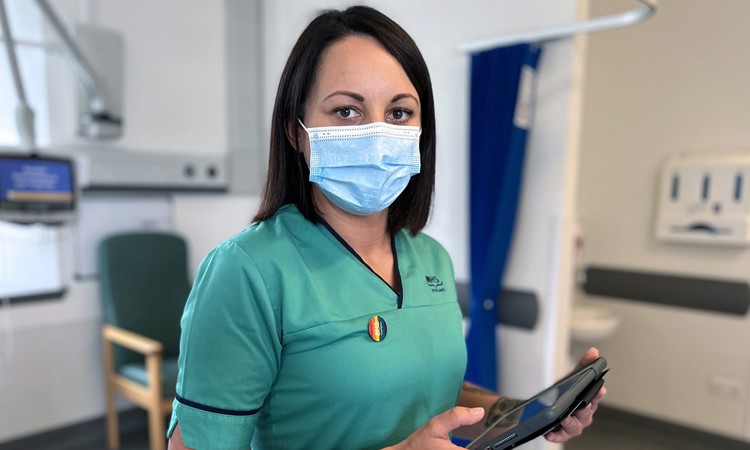Previous
Laundry assistant
You can become a mechanical engineer by completing a Modern Apprenticeship or applying for a vacancy on our recruitment website.
Mechanical engineers install, repair, and maintain mechanical equipment to make sure it is in working condition and can be used safely.
They work on heating, ventilation, air conditioning, hot water systems, dishwashers, sluice devices, and industrial laundry equipment.

To become a mechanical engineer, you'll need a good standard of education. Useful subjects include:
Speak to your guidance teacher about subjects offered at your school.

You may find it helpful to get some healthcare experience by doing a work placement or volunteering. You’ll get training, increase your knowledge, and learn new skills. This could help you when applying to university, college or a new job with NHSScotland.
A Modern Apprenticeship is a route to a career as a mechanical engineer in the NHS.
During the 4-year programme, you’ll complete an industry-recognised qualification. A qualified mechanical engineer will mentor you while you learn everything you need to know about domestic and industrial systems and mechanical equipment.
Learn more about an Engineering Modern Apprenticeship.
If you already have an Engineering Modern Apprenticeship, you can apply for vacancies on our recruitment website.
The following may be useful to have:
In the NHS, hospitals and health centres must be kept at the right temperature to keep patients warm. It's also vital that supplies are kept cool.
You'll maintain and repair different systems, including heating and ventilation, steam distribution, air conditioning, and domestic water. You will be part of a team that can be working on a hospital site or at another healthcare facility.
Tasks include:
You'll need these skills:
You'll work with:
You could work in:
As a mechanical engineer, you’ll work towards completing the Estates Workbook. During your career, you’ll also need to complete specialised training in systems and equipment. It will help you gain the knowledge required to comply with standards, laws, and national guidelines.
Gaining new qualifications could help you to progress your career in estates services, leading to more senior roles with greater responsibilities.

Discover the skills and qualifications you’ll need for each role and what the work will be like.
Explore careers
We'll guide you through the recruitment process, from applying online to interview preparation.
Help with recruitment